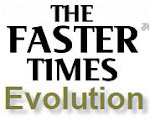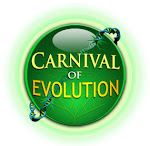I felt that the below article was worth re-posting here, especially after just having watched Jesse Ventura’s ‘documentary’ on the global warming conspiracy - give me a break…
The below was written by Steven Newton; the public information project director for the National Center for Science Education. It originally appeared in the Philadelphia Inquirer on 12/24/09.
Science denial is on the rise
From evolution to global warming to vaccines, science is under assault from denialists - those who dismiss well-tested scientific knowledge as merely one of many competing ideologies. Science denial goes beyond skeptical questioning to attack the legitimacy of science itself.
Recent foment over stolen e-mails from a British research group inspired an American creationist organization to pronounce that "a cabal of leading scientists, politicians, and media" has sought to "professionally destroy scientists who express skepticism" about climate change. The Discovery Institute usually uses this kind of over-the-top language to attack evolution, so it was remarkable to see it branch out to climate-change denial.
Despite such misleading hyperbole, science is meritocratic. Once at a minimum level of education and competence, anyone can participate, ask a challenging question of even the most respected scientist, or submit papers to scientific journals, where research is judged by the data and methodology. Esteemed scientists face relentless criticism. This is how science works.
Even when a scientific consensus based on evidence emerges - as it has for evolution and climate change - there is opportunity for dissent. As the great physicist Richard Feynman noted, "Science is the belief in the ignorance of experts."
Science requires conclusions about how nature works to be rooted in evidence-based testing. Sometimes progress is slow. But through a difficult and often frustrating process, we learn more about the world.
Science denialism works differently. Creationists are unmoved by the wealth of fossil, molecular, and anatomical evidence for evolution. Global-warming denialists are unimpressed by climate data. Denialists ignore overwhelming evidence, focusing instead on a few hoaxes, such as Piltdown Man, or a few stolen e-mails. For denialists, opinion polls and talk radio count for more than thousands of peer-reviewed journal articles.
Denialists often appeal to the ideal of fairness, arguing schools should "teach the controversy" and address "evidence for and against" science, as in then-Sen. Rick Santorum's proposed amendment to the No Child Left Behind bill in 2001. But they apply the ideal selectively to science they dislike: evolution, climate change, vaccines. They hope to cloak themselves in the mantle of science without being restricted by its requirements.
If denialists had evidence disproving global warming or evolution, they could submit it to scientific conferences and journals, inviting analysis by scientists. But, knowing their arguments don't hold water, they spread misinformation in arenas not subject to expert scrutiny: mass-market books, newspapers, talk radio, and blogs.
Understanding science has never been more important than it is today. Critical issues such as climate change and the threat of newly evolved flu strains demand greater scientific literacy among the public and politicians. As long as scientists must squander their time defending their work from denialism, we will fall behind on our fundamental responsibilities.
Monday, December 28, 2009
Subscribe to:
Post Comments (Atom)





























No comments:
Post a Comment